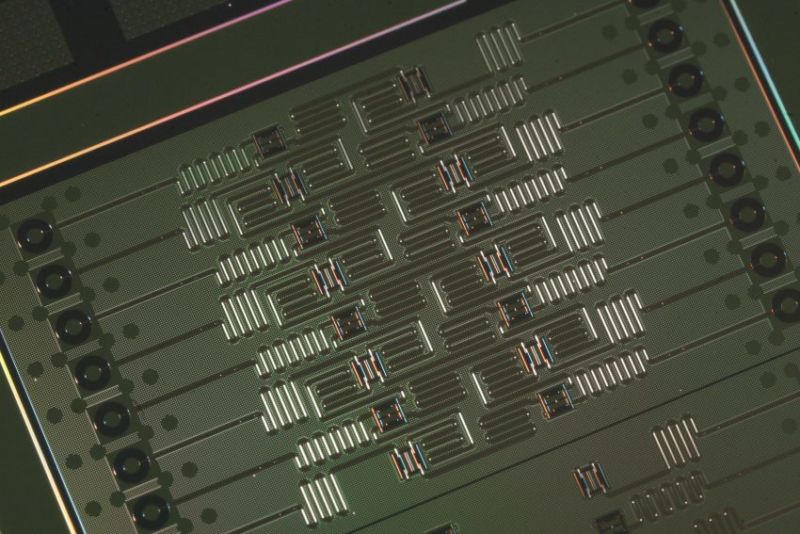Cloud-based quantum computer takes on deuteron and wins

Enlarge (credit: A 16-cubit quantum computing processor from IBM.)
First it was the electron behavior in a hydrogen molecule, then beryllium dihydride joined the club. Now, quantum computers have been used to calculate some of the properties of an atomic nucleus: the deuterium nucleus to be precise.
What we are witnessing are two concurrent and useful processes. The first, which we have covered extensively, is the development and availability of quantum computers. But, I've not really discussed the second at all: the development of algorithms.
You see, theorists-the potential users of quantum computers-have a dilemma. Quantum computers hold a lot of promise. It is highly likely that a good quantum computer can calculate the properties of things like molecules and atomic nuclei much more efficiently than a classical computer. Unfortunately, the current generation of quantum computers, especially those that the average theorist can get access to, are rather limited. This gives the theorists a challenge: can they make computations less resource-intensive so that they can be performed on the currently available hardware?
Read 15 remaining paragraphs | Comments